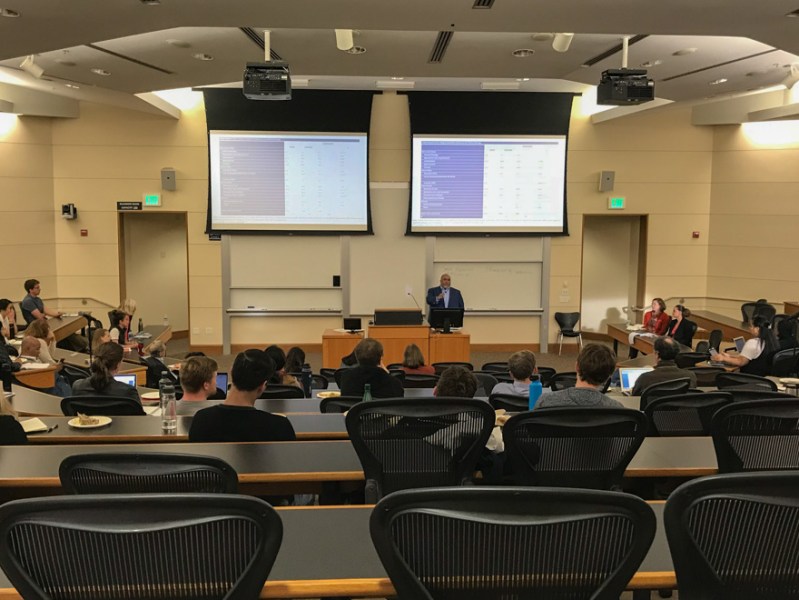On Wednesday, Harvard sociologist Lawrence Bobo addressed racial resentment — another term for what other scholars have called modern racism or symbolic racism — as part of a new speaker series created at the recommendation of Stanford Law’s Faculty and Student Working Group on Diversity and Inclusion. Bobo was previously director of Stanford’s Center for Comparative Studies on Race and Ethnicity.
The working group was founded last February following the campaign “Racism Lives Here Too” (RLHT), spearheaded by Stanford Law School (SLS) students. The campaign included posters bearing the words of SLS students and professors, a banner reading “Racism Lives Here Too” and a Daily op-ed co-authored by eight SLS students seeking recognition of enduring race-related issues at Stanford Law.
“SLS makes it easy to avoid talking about race,” the article’s authors wrote. “It’s stunning that you can graduate with a Stanford Law degree and completely avoid discussions of race and structural inequalities in your three years here.”
A letter published in July by SLS Dean M. Elizabeth Magill outlined the working group’s recommendations, which related to climate, curriculum, admissions, faculty appointments and data.
Thus far, SLS has implemented several of the recommendations, including creating a standing cabinet on diversity and inclusion, considering changes to the 1L curriculum to include courses dealing with issues of race and creating a speaker series on identity and bias.
Bobo’s lecture is the first installment of the speaker series, which is structured as a one-unit course taught by Stanford Law professor Joe Bankman.
In his research, Bobo said, he found that differences in age groups and regions do not matter in terms of levels of racial resentment. However, higher education was found to decrease levels of racial resentment.
“A large fraction of whites believe that structural barriers are a thing of the past, that blacks or even other minorities fail to succeed because of their cultural deficiencies, and that rather than striving as individuals to get ahead, they’re pressing these group claims on government and society,” said Bobo.
On the other hand, according to Bobo, low-resentment respondents believe that race is “always in play and that the game has been unfairly rigged for generations to keep blacks in a relatively disadvantaged position no matter how hard they work.”
Bobo connected his talk to current events, including President Donald Trump’s recent proposal of an executive order to end birthright citizenship. Bobo said he wished the tweet prompted a “more thoughtful and broad educational movement” about the meaning of the 14th Amendment.
“Why do we have birthright citizenship?” Bobo proposed as a discussion question for the general public. “And I hate to keep reducing it that way, but it’s about black people. The Civil War was over, and how do we say these people are covered by the Constitution? They’re not property anymore; they’re not slaves. Part of what you’re doing is writing these people into citizenship.”
Contact Erin Woo at erinkwoo ‘at’ stanford.edu.
